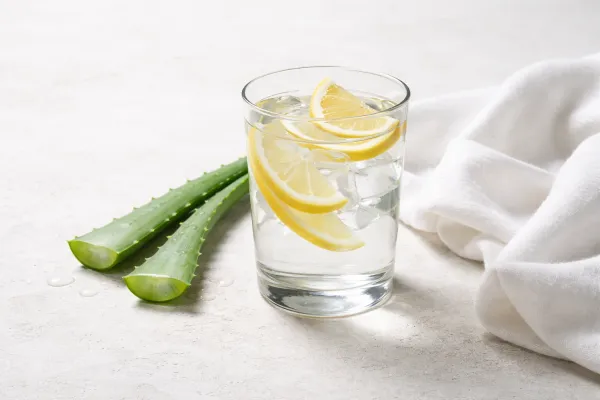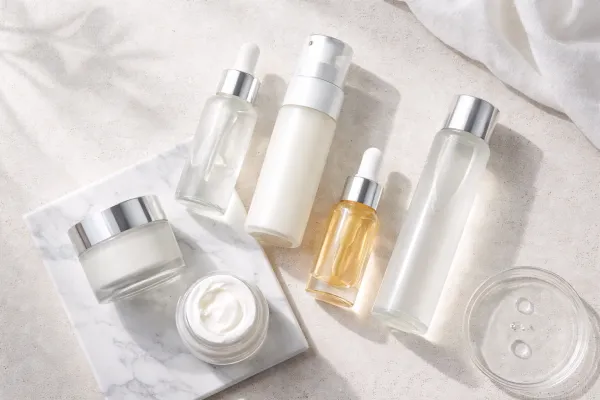Effective Daily Routine for Dry Skin: Tips and Tricks for Hydration
Discover tips for a daily routine to hydrate and care for dry skin effectively!

Dry skin can be a real challenge, but having a solid daily routine can make a big difference.
By understanding the causes, symptoms, and effective skincare practices, you can keep your skin hydrated and healthy.
This article offers practical tips and tricks to help you develop a daily routine that works for your skin type, ensuring you stay moisturized throughout the day and night.
Key Takeaways
- Always use a gentle, hydrating cleanser to avoid stripping your skin of natural oils.
- Apply moisturizer while your skin is still damp to lock in moisture effectively.
- Drink plenty of water daily to keep your skin hydrated from the inside out.
- Choose products with nourishing ingredients like hyaluronic acid and glycerin.
- Avoid harsh soaps and hot showers, which can worsen dryness.
Understanding Dry Skin: Causes and Symptoms
Dry skin can be a real pain, right? It’s not just about feeling tight or looking flaky; it’s about understanding what’s going on beneath the surface. Dry skin, also known as xerosis, happens when our skin lacks moisture, making it rough and sometimes even scaly. Let’s dive into the causes and symptoms together!
Common Causes of Dry Skin
There are a bunch of reasons why our skin might be feeling dry. Here are some of the most common culprits:
- Weather conditions: Cold air can suck the moisture right out of our skin.
- Hard water: The minerals in hard water can strip our skin of its natural oils.
- Excessive washing: Washing too often can lead to dryness.
- Irritants: Certain soaps and products can be harsh on our skin.
- Medical conditions: Issues like hypothyroidism can also play a role.
Recognizing the Symptoms
So, how do we know if we have dry skin? Here are some signs to look out for:
- Flakiness: Skin that looks like it’s peeling.
- Itching: A constant urge to scratch.
- Cracking: Skin that feels rough and may even bleed in severe cases.
When to See a Dermatologist
If we notice that our dry skin isn’t improving with basic care, it might be time to consult a dermatologist. Here are some reasons to seek professional help:
- Persistent dryness: If it doesn’t go away with moisturizer.
- Severe itching or pain: If it’s affecting our daily life.
- Signs of infection: Redness, swelling, or pus can indicate a problem.
Remember, taking care of our skin is super important! Keeping it hydrated can make a huge difference in how we feel and look. Let’s keep our skin happy!
Morning Routine: Kickstart Your Day with Hydration

Starting our day with a solid morning routine can make a huge difference for our dry skin. Here’s how we can kickstart our hydration:
Gentle Cleansing Tips
First things first, we need to cleanse our face gently. Using a mild cleanser helps remove dirt without stripping our skin of its natural oils. Here’s what to keep in mind:
- Choose a hydrating cleanser.
- Avoid harsh soaps that can dry us out.
- Look for ingredients like glycerin or hyaluronic acid.
Using a Hydrating Toner
Next up, let’s tone! A good toner can help balance our skin’s pH and prep it for moisture. Here’s how to pick the right one:
- Go for alcohol-free options.
- Look for hydrating ingredients like rose water or aloe vera.
- Apply it with a cotton pad or just pat it on with our hands.
Moisturizing Techniques for the Morning
Finally, we need to lock in that moisture. Applying a good moisturizer is key to keeping our skin hydrated throughout the day. Here’s a quick guide:
- Use a lightweight, non-comedogenic moisturizer.
- Apply it while our skin is still damp from the toner.
- Don’t forget to include our neck and décolletage!
Remember, a consistent routine is essential for keeping our skin happy and hydrated. Let’s make it a habit!
Choosing the Right Moisturizer for Dry Skin
Ingredients to Look For
When it comes to picking a moisturizer for dry skin, we want to focus on a few key ingredients that really help. Here’s what to look for:
- Humectants: These draw moisture into the skin. Think glycerin and hyaluronic acid.
- Occlusives: These create a barrier to lock in moisture. Look for ingredients like petrolatum and beeswax.
- Emollients: These smooth and soften the skin. Ingredients like shea butter and ceramides are great choices.
How to Apply Moisturizer Effectively
Applying moisturizer the right way can make a big difference. Here’s how we do it:
- Apply on damp skin: Right after washing your face or showering, pat your skin dry and apply moisturizer while it’s still slightly damp. This helps lock in moisture.
- Use enough product: Don’t be shy! Use a generous amount to cover your face and neck.
- Massage it in: Gently massage the moisturizer into your skin using upward strokes. This not only helps absorption but also feels nice!
Top Moisturizers for Dry Skin
Here’s a quick look at some of our favorite moisturizers that work wonders for dry skin:
Product Name | Key Ingredients | Price Range |
|---|---|---|
CeraVe Moisturizing Cream | Ceramides, Hyaluronic Acid | $$ |
Neutrogena Hydro Boost Gel | Hyaluronic Acid | $ |
La Roche-Posay Toleriane | Glycerin, Shea Butter | $$ |
Remember, finding the right moisturizer can take some trial and error. What works for one person might not work for another, so don’t hesitate to experiment until you find your perfect match!
In summary, choosing the right moisturizer is all about understanding your skin's needs and picking products that will help keep it hydrated and happy. Let’s keep our skin glowing!
Hydration from Within: Importance of Drinking Water

Daily Water Intake Recommendations
Staying hydrated is super important for our skin! We should aim for about 8 glasses of water a day. This helps keep our skin looking fresh and plump. Here’s a quick breakdown:
Age Group | Daily Water Intake |
|---|---|
Children (4-8) | 5 cups |
Teens (9-18) | 7-8 cups |
Adults (19+) | 8-10 cups |
Benefits of Staying Hydrated
When we drink enough water, our skin can really benefit. Here are some perks:
- Improved skin elasticity
- Reduced dryness and flakiness
- A more vibrant complexion
Tips to Increase Your Water Consumption
Sometimes, it’s hard to drink enough water. Here are some fun ways to boost our intake:
- Carry a water bottle everywhere.
- Add slices of fruit for flavor.
- Set reminders on your phone.
Staying hydrated is key to keeping our skin healthy and glowing. Let’s make it a habit!
Remember, while drinking water is essential, there's a debate about whether it actually re-hydrates our skin. Some say there's a lack of research proving water consumption impacts skin hydration or overall appearance in people who are healthy. So, let’s keep our skin care routine balanced!
Nighttime Routine: Locking in Moisture

When it comes to keeping our skin hydrated, a solid nighttime routine is key. This is when our skin does most of its repairing and rejuvenating. Let’s dive into how we can lock in that moisture while we sleep!
Night Cleansing Rituals
- Start with a gentle cleanser to wash away the day’s dirt and makeup. This helps our skin breathe and prepares it for the next steps.
- Don’t forget your neck! It’s often overlooked but deserves the same care as our face.
- Pat dry with a soft towel instead of rubbing, to avoid irritation.
Overnight Masks and Treatments
- Hydrating masks can be a game-changer. They provide an extra boost of moisture while we snooze.
- Look for masks with ingredients like hyaluronic acid and glycerin, which are known for their hydrating properties.
- Apply a thin layer and let it work its magic overnight!
Best Night Creams for Dry Skin
Choosing the right night cream is crucial. Here are some ingredients to look for:
Ingredient | Benefit |
|---|---|
Hyaluronic Acid | Attracts and retains moisture |
Ceramides | Strengthens the skin barrier |
Niacinamide | Calms and evens skin tone |
Incorporating these steps into our nighttime routine can make a huge difference. Remember, consistency is key! Let’s wake up to soft, hydrated skin every day!
Weekly Treatments: Extra Care for Your Skin

Exfoliation Tips for Dry Skin
Taking care of our dry skin means we need to give it some extra love every week. Exfoliating helps remove dead skin cells, making our skin feel fresh and smooth. Here are some tips:
- Use a gentle scrub or a chemical exfoliant once a week.
- Focus on areas that feel rough or flaky.
- Always follow up with a good moisturizer to lock in hydration.
Hydrating Face Masks
Face masks can be a game-changer for our skin. They provide a boost of moisture and can be super relaxing! Here are some of our favorites:
- Aloe Vera Mask: Soothes and hydrates.
- Honey and Yogurt Mask: Great for nourishment.
- Rice Water Mask: Helps brighten and hydrate.
DIY Treatments to Try at Home
We can whip up some amazing treatments right in our kitchen! Here are a few simple recipes:
- Rice Water Mask: Soak rice in water, strain, and use the water on your face.
- Aloe Vera Gel: Apply fresh aloe directly to your skin for instant hydration.
- Yogurt and Honey Mix: Combine equal parts and apply for a soothing mask.
Remember, taking time for these weekly treatments can really help our skin feel soft and hydrated. Let's make it a fun part of our routine!
Protecting Your Skin from Environmental Factors
When it comes to keeping our skin healthy, we need to think about the environment around us. Environmental factors can really mess with our skin's hydration levels. Here are some tips to help us protect our skin:
Impact of Weather on Dry Skin
- Cold Weather: It can strip moisture from our skin, making it feel tight and dry.
- Hot Weather: The sun can cause damage and lead to dryness.
- Windy Days: Wind can also dry out our skin, so we need to be cautious.
Using Sunscreen Daily
- Sunscreen is a must! It protects us from harmful UV rays that can cause dryness and aging.
- We should choose a broad-spectrum sunscreen with at least SPF 30.
- Remember to reapply every two hours, especially if we're outside.
Shielding Your Skin from Pollution
- Pollution can be harsh on our skin, leading to dryness and irritation.
- We can use products with antioxidants to help combat this.
- Wearing protective clothing can also help shield our skin from pollutants.
Keeping our skin hydrated is not just about what we put on it, but also about how we protect it from the world around us.
By being mindful of these factors, we can help our skin stay hydrated and healthy!
Diet and Nutrition: Foods That Help Hydrate Your Skin
When it comes to keeping our skin hydrated, what we eat plays a huge role. Incorporating the right foods can make a big difference in how our skin feels and looks. Here are some key points to consider:
Hydrating Foods to Include
- Fruits and Vegetables: Water-rich options like cucumbers, oranges, and strawberries are fantastic for hydration.
- Healthy Fats: Foods high in omega-3 fats, like salmon, chia seeds, and walnuts, help maintain skin moisture.
- Whole Grains: Foods like brown rice and quinoa can support skin health by providing essential nutrients.
Vitamins and Minerals for Skin Health
- Vitamin E: Found in nuts and seeds, it helps protect skin from damage.
- Vitamin C: Citrus fruits and bell peppers boost collagen production, keeping skin firm.
- Zinc: Present in beans and nuts, it aids in skin repair and healing.
Foods to Avoid for Dry Skin
- Sugary Snacks: They can lead to inflammation and worsen dryness.
- Processed Foods: Often lacking in nutrients, they can negatively impact skin health.
- Excessive Caffeine: It can dehydrate the body, affecting skin moisture.
Remember, a balanced diet not only nourishes our bodies but also helps keep our skin looking its best!
By focusing on these hydrating foods, we can support our skin from the inside out. Let's make those healthy choices together!
Lifestyle Changes to Improve Skin Hydration

Humidifiers and Their Benefits
Using a humidifier in our homes can make a big difference, especially during dry winter months. Adding moisture to the air helps our skin stay hydrated. Here are some benefits of using a humidifier:
- Reduces dryness in the skin
- Helps with respiratory issues
- Keeps our indoor plants healthy
Avoiding Hot Showers
We all love a hot shower, but it can actually strip our skin of moisture. Instead, let’s try to:
- Limit showers to 5-10 minutes.
- Use warm water instead of hot.
- Apply moisturizer right after drying off.
Stress Management for Better Skin
Stress can really take a toll on our skin. Managing stress is key to keeping our skin hydrated. Here are some simple ways to help:
- Practice deep breathing or meditation.
- Get regular exercise to boost mood.
- Make time for hobbies we enjoy.
Remember, small changes can lead to big improvements in our skin health. Let’s embrace these lifestyle tweaks for a more hydrated complexion!
Understanding the Role of Humidity in Skin Health
When it comes to keeping our skin happy, humidity plays a huge role. It helps regulate skin moisture and can make a big difference in how our skin feels and looks.
How Humidity Affects Your Skin
- High Humidity: When the air is moist, our skin can absorb more water, making it feel plump and hydrated.
- Low Humidity: On the flip side, dry air can suck moisture right out of our skin, leading to dryness and irritation.
- Seasonal Changes: As the seasons change, so does the humidity. We need to adjust our skincare routines accordingly.
Maintaining Optimal Indoor Humidity
To keep our skin in check, we can:
- Use a humidifier, especially in winter.
- Keep indoor plants that release moisture.
- Take shorter, cooler showers to avoid stripping our skin of natural oils.
Travel Tips for Different Climates
- Hot and Humid: Stick to lightweight, hydrating products.
- Cold and Dry: Layer on thicker creams to lock in moisture.
- Adjust Your Routine: Always be ready to tweak your skincare based on where you are.
Remember, our skin is like a sponge; it thrives in the right conditions!
Common Mistakes to Avoid with Dry Skin
Over-Cleansing and Its Effects
We all want clean skin, but over-cleansing can actually make dry skin worse. It strips away natural oils, leaving our skin feeling tight and uncomfortable. Instead, let’s stick to gentle, fragrance-free cleansers that hydrate while they clean.
Skipping Moisturizer
We might think that applying moisturizer once a day is enough, but that’s a big mistake! Moisturizing twice daily is key to keeping our skin hydrated. Remember to apply it on damp skin for the best results.
Using Harsh Products
Some products can be really tough on our skin. We should avoid:
- Alcohol-based products
- Harsh exfoliants
- Fragrance-heavy items
These can irritate our skin and lead to more dryness. Let’s choose gentle, hydrating options instead!
It’s important to remember that everyone’s dry skin is unique and may require different care. If your dry skin is persistent, uncomfortable, or experiences cracking, chafing, bleeding, or extreme itching, seek the help of a doctor or board-certified dermatologist.
By avoiding these common mistakes, we can help our skin stay hydrated and healthy!
Wrapping It Up: Your Daily Dry Skin Routine
So there you have it! Keeping your skin hydrated doesn’t have to be a chore.
Just remember to stick to a simple routine: cleanse gently, moisturize often, and don’t forget that sunscreen!
Using the right products can make a big difference, so look for ones that are made for dry skin.
And hey, if you ever feel like your skin needs extra help, don’t hesitate to chat with a dermatologist.
They can give you advice that’s just right for you. With a little care, you’ll be on your way to soft, happy skin in no time!
Frequently Asked Questions
What causes dry skin?
Dry skin can be caused by many things, like cold weather, hot showers, or using harsh soaps. Sometimes, it can also be due to certain medical conditions. Common causes of skin barrier damage include: Over-exfoliation or using harsh cleansers, Sun damage or extreme weather, Allergens and irritants from products, Certain medical conditions like atopic dermatitis. These factors weaken the barrier, making the skin prone to sensitivity, infections, and dehydration. Your lifestyle choices can make or break your skin barrier. Besides using the right moisturizer, several lifestyle factors can support barrier repair: Healthy Diet: Eat a balanced diet rich in omega-3 fatty acids, Hydration: Drink plenty of water.
How can I tell if my skin is dry?
You might notice your skin feels tight, looks flaky, or itches. Sometimes, it can even crack or feel rough. When your skin barrier is compromised, you may experience: Dryness and flakiness, Sensitivity to products or environmental factors, Increased redness or irritation, More frequent breakouts or infections. These are clear signs that your protective barrier becomes less effective, leaving your skin vulnerable to damage and unpleasant conditions. Signs of an imbalanced skin pH include: Excessive dryness or flaking, Redness and irritation, Increased sensitivity, Breakouts or acne, Tightness or discomfort after cleansing.
What should I use to moisturize dry skin?
Look for moisturizers that have ingredients like glycerin, hyaluronic acid, or shea butter. These help keep your skin hydrated. Ceramides are like the mortar that holds the bricks (skin cells) of your skin barrier together. They're essential lipids that help maintain the barrier's structure and prevent moisture loss. Hyaluronic acid (HA) is a humectant, meaning it attracts and holds onto water like a magnet. It can hold up to 1000 times its weight in water! This makes it a powerhouse for hydrating sensitive skin without clogging pores or causing irritation. What's the Difference Between Hydration and Moisturization, and Why Do I Need Both? Hydration is about increasing the water content of your skin, while moisturization is about preventing that water from escaping. Think of it like this: hydration is like filling a bucket with water, and moisturization is like putting a lid on it to keep the water from evaporating. Hyaluronic acid is a great hydrator, while ceramides, fatty acids, and occlusive ingredients like shea butter and dimethicone help to moisturize and seal in that hydration. You need both for optimal skin barrier repair.
How often should I apply moisturizer?
It's best to apply moisturizer at least twice a day, especially after washing your face or taking a shower. You should moisturize your skin at least twice a day, once in the morning and once at night. A consistent skincare routine with a gentle cleanser, targeted treatments (like retinoids or benzoyl peroxide), and a lightweight moisturizer is key. Do this twice daily. For the best results, apply moisturizer to your face and body immediately after bathing, showering or shaving while the skin is still damp. Moisturizer works by trapping water in your skin, which can help reduce the appearance of fine lines and make your skin look brighter and younger.
Can drinking water help my dry skin?
Yes! Staying hydrated by drinking enough water can help keep your skin moist and healthy. While your diet won't directly alter your skin's pH, it can impact your overall health, which in turn affects your skin. A balanced diet rich in antioxidants, vitamins, and essential fatty acids supports healthy skin function. Staying hydrated by drinking plenty of water is also crucial. Besides using the right moisturizer, several lifestyle factors can support barrier repair: Healthy Diet: Eat a balanced diet rich in omega-3 fatty acids, Hydration: Drink plenty of water. A diet rich in whole, healthy foods provides your skin with the nutrients it needs to repair itself. Conversely, a diet high in processed foods, sugar, and unhealthy fats can contribute to inflammation and weaken your skin barrier. Your lifestyle choices can make or break your skin barrier.
Is it okay to exfoliate dry skin?
Yes, but be gentle! Use a mild exfoliant and don't do it too often, as it can irritate your skin. If your skin barrier is compromised, cut back on exfoliating or avoid it altogether until your skin recovers. Harsh exfoliating, whether with physical scrubs or chemical exfoliants, can strip away the skin barrier, leading to dryness, irritation, and increased sensitivity. It's like taking a sandblaster to your skin's protective wall. Exfoliate gently and in moderation, no more than 1-2 times per week. Avoid over-exfoliating to prevent further skin damage. Stick to a simple, gentle routine until your barrier heals.
Should I use sunscreen if I have dry skin?
Definitely! Sunscreen protects your skin from harmful rays and helps prevent further dryness. You should apply sunscreen every day on skin not covered by clothing if you will be outside. The sun emits harmful UV rays year-round. Even on cloudy days, up to 80% of the sun's harmful UV rays can penetrate the clouds. Dermatologists recommend using a sunscreen with an SPF of at least 30, which blocks 97% of the sun's UVB rays. Higher-number SPFs block slightly more of the sun's UVB rays, but no sunscreen can block 100% of the sun's UVB rays. The kind of sunscreen you use is a matter of personal choice and may vary depending on the area of the body to be protected. Available sunscreen options include lotions, creams, gels, ointments, wax sticks, and sprays. Creams are best for dry skin and applying on the face. Gels are good for oily complexions and hairy areas, such as the scalp or male chest. Sticks are good to use around the eyes.
When should I see a doctor about my dry skin?
If your dry skin is severe, painful, or doesn't get better with home care, it's a good idea to see a dermatologist. For mild cases, you can repair a compromised barrier with gentle products and good habits. However, if you experience: Persistent skin sensitivity, Repeated skin infections, Chronic conditions like dermatitis, ...it's time to see a dermatologist. They can tailor treatments to your skin's needs. Dermatologists are essential for diagnosing and treating conditions related to a compromised skin barrier. Consulting a dermatologist ensures you're not just guessing about your skin's needs. If you're experiencing severe or persistent skin issues, it's best to consult a dermatologist for personalized advice and treatment. New spots or moles that itch, bleed, or change color are often early warning signs of skin cancer. If you notice any suspicious spots, make an appointment to see a dermatologist. Dermatologists are skin cancer experts.




